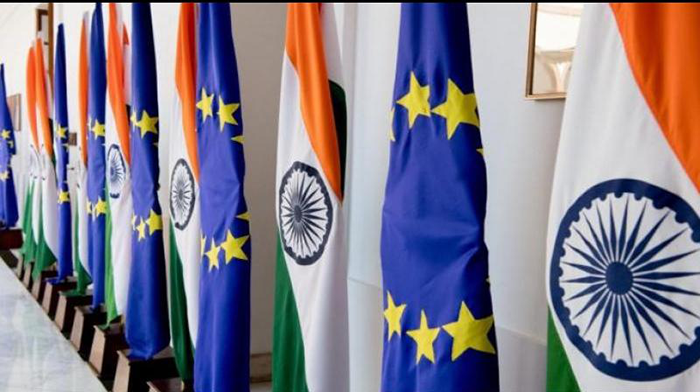NEW DELHI: The EU and India will build joint infrastructure projects in Africa, Central Asia and the Indo-Pacific, an Indian Foreign Ministry official said on Saturday, after the conclusion of bilateral talks.
India and the EU also revived stalled free trade negotiations, while also seeking closer cooperation to combat climate change, as concerns about China bring Brussels and New Delhi closer.
EU-India trade talks were frozen in 2013 over differences including tariff reductions, patent protection, data security and the right of Indian professionals to work in Europe.
A 2020 study by the European Parliament put the benefits of a trade deal for the EU with India at up to €8.5 billion ($10.2 billion), although the estimate was made before Britain’s departure from the bloc.
“It is no coincidence that items on the Europe-India agenda — maritime security in the Indian Ocean, alternatives to the BRI, emerging technologies, 5G — all have elements of competition with China,” said Garima Mohan, an Asia expert at the German Marshall Fund think tank.
The India-EU Connectivity collaboration also calls for developing a “joint vision and an aligned roadmap for beyond 5G technologies” and fostering “open, more secure, sustainable, interoperable, environmentally friendly and fair access to cloud services,” the Indian media reported.
There was also provision for “resilient, secure and standards-compliant networks, stepping up collaboration on mitigating network risks and increasing joint efforts to promote an open, free, stable and secure cyberspace.”
Creating an environment for boosting digital investments between India and the EU, leveraging opportunities for improving cross-border payments including remittances, between the EU and India is also accounted for under the terms of the India-EU connectivity cooperation.
The EU accounted for €96 billion ($117 billion) of trade in goods and services in 2020, 11 percent of India’s total, just behind China and the US, according to the European Commission.
Alongside the trade talks, the sides also agreed to launch negotiations on two separate agreements on investment protection and on geographic indications — those that protect products that have a specific place of origin.
Still, EU officials warn that even though there is willingness to re-engage in trade negotiations, progress is still scant on a lot of key areas including Indian tariffs for goods — especially cars — and intellectual property rights.
G20 thinkers consider options for boosting global investment in infrastructureEU drafts rules to curb state-backed foreign buyers

